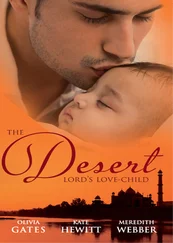* * *
Then came summer. As far as I knew, Amélie and Jean were spending every day at the mall. That was true of most teenagers in the Antelope Valley. Karinger was proud to say we were the only ones wise enough to understand the desert. “You can find a mall anywhere, can’t you?” he said. So when, after a long day of digging trenches and bunkers between Joshua trees for a game of paintball, we spotted a parked car reflecting the orange sun next to our dismantled bicycles, we were — at least I was — afraid. But I vaguely recognized the car, and when the doors opened to reveal Jean and, on the driver’s side, Amélie, my fear was replaced by a kind of bitterness. The one unspoken rule between my sister and me — keep your worlds separate — had been violated, and I was ready to call foul. However, Robert—“Karinger,” he reminded me with an elbow to the side — was all charm and accommodation. “Ladies,” he said. “What can we do you for?”
* * *
To hear them say it, Amélie and Jean hadn’t seen an antelope but a ghost. Karinger kept asking for details.
“Where, exactly?”
“Way east, down by the 138.”
“When?”
“Just now — drove the twenty minutes over here right after spotting him.”
“ Him —you sure it’s a male?”
“How do you tell?”
“Well, horns or no horns?”
“Horns, small ones.”
“How big?”
“I said small.”
“Not the horns, the animal.”
“Big, real big.”
I took a different line of questioning.
“What were you and Emily doing out in the desert in the first place?”
“It’s Amélie, and we were just going for a drive, that’s all.”
“How’d you know where to find me and Karinger?”
“Didn’t — just saw your bikes on the side of the road by accident.”
“So what’d you stop for — what is it you want from us?”
“I’m beginning to ask myself the same question, jerk.”
* * *
Karinger convinced Amélie and Jean to drive back to the place of the sighting, but couldn’t convince me to leave our bikes behind and join them. I rode home, maneuvering Karinger’s bike alongside mine. The next day, I asked Karinger how the search went, if they saw the antelope. “Negative,” he said. “Waste of time. Should’ve rode home with you.” And that was the last we said of the matter.
* * *
At the end of summer, Jean moved away to college, and Karinger and I started high school. Four years later, my sister had gone back to Jean, as in denim, and moved East for law school. Karinger and I celebrated our diplomas before he left for boot camp. Then we had our last conversation, and time passed indifferently.
* * *
The unspoken rule: Keep your worlds separate. But once Jean finished law school and decided to stay in New York, and once I moved to San Francisco after college, the rule became enforced not by us, but by the width of a continent. This — we preferred self-enacted divisions — we didn’t like. So as we got older, we grew closer. We called each other more often, and Mom got sick and passed away, and I went back to the Antelope Valley temporarily, and Dad was doing fine, selling more furniture than ever, he said, though we had a hard time believing him. He was sixty-two and still nowhere near retirement. He didn’t need me at the house, but I ended up moving home anyway to keep him company, and made some money writing for the internet, which almost anyone can do. Jean kept saying how she felt bad for us — bad for Dad, mostly, which I joked sounded like a gloomy book by Dr. Seuss. Jean didn’t laugh. She was the kind of person who cried in the parking lot if the cashier at Target was over the age of forty. So one day she called and told us to pack our bags. “Family vacation,” she said, and when I asked her where she was taking us, she just said to start calling her Jean again.
* * *
Dad refused to get a passport. He didn’t want to be in Paris without his wife. He insisted we go ahead, and Jean asked a million times if he was sure.
He was sure.
* * *
Naturally, Jean did all the talking. Having not taken a French class since high school, she must have spoken at a ninth-grade level. Still, I listened to the most basic French words fall out of her mouth, and something about the familiarity of her voice combined with the strange music of her speech carved out of me so much respect for her, I almost cried when she ordered, at a sidewalk café, two slices of quiche.
* * *
We scaled the Eiffel Tower and took selfies on the Champs-Élysées, which I stupidly hadn’t known was a street. (I’d thought it was a hotel.) This was my first time outside of the country, and I clung to Jean everywhere we went. People must have mistaken us for lovers. Jean looked beautiful — heavy lashes and eyebrows framed her big hazel eyes, and she had this naturally layered brown hair and year-round summer skin, and a wide mouth with lips so full, it gave her the look of a woman always on the verge of correcting something you’re about to say. People like a large mouth on a woman — even in Paris, I bet, and they probably looked at her and thought, why is this beautiful large-mouthed woman with him ? Why is she with this young American boy with pale skin and an incomplete beard and skinny jeans unfashionably and unseasonably worn with boat shoes? Why is she with this idiot, who keeps calling her by a man’s name?
* * *
The flight the next day wasn’t scheduled until the afternoon, so Jean took me to a queer club that night and said, “I don’t know if there’s a place on earth more diametrically opposite to the Antelope Valley.” We ended up getting a table in the corner beneath large floating paper orbs of green light. I enjoyed watching the men dance, but the sheer mentioning of the name of our hometown seemed to tether our conversation to it, and our attention stayed there, and we spoke about home over the swelling wub-wub-wub s of the music. I told her about the name of the town, how the antelope weren’t really antelope at all. She seemed upset — she was drunk, to be fair, and so was I, and I said, “Sad, right? Even in Paris, we’re talking about the fucking Antelope Valley.”
Jean thumbed the water on the outside of her glass. “Have I ever told you the story of when Emily and I went out looking for one of those antelope-whatevers? We were with a guy.” I told her I knew; the guy she was talking about was my friend Robert Karinger. I reminded her about our meeting in the desert. “Weird,” she said, “I don’t remember that.”
Here’s what she remembered: She and Emily and a guy Emily brought along drove out at twilight to the eastern edge of the desert. The sky was the beautiful sky you hope for during a sunset, blue and orange upstrokes from behind the mountains. And there, on its hind legs, gnawing at the flower of a Joshua tree, stood an antelope. A pronghorn. Its black nub of a tail swatted yellow flies you could make out in the last of the light. When the animal landed on all fours, it turned to look at the car. Then the pronghorn came walking right up to the road, sauntering, and put its face up against the passenger window, the one by Jean’s face, as if saying hello.
The animal waited there for a while, its black eye staring dumbly into the car. Jean and Emily and the boy in the backseat spoke in the reverent tones of witnesses. Jean was the only one afraid. “Emily wanted to open the window and stroke its nose,” she told me. “The boy in the backseat, well, he got out of the car on the opposite side, and walked slowly around the back of the car to where the antelope was standing. He came up behind it, real slow. The antelope knew he was there, and put out his back leg. Not a kick — just slowly put out his leg, I swear to God, like a hand. And this boy, he held on to the hoof. First he just had one hand on it, as if they were greeting each other. Then he wrapped his other hand around the ankle. He just held the leg for a long time, started petting it, until Emily went out of the car and stroked the antelope’s nose. And the antelope — the pronghorn — let it all happen, back leg out, nose down. And I just watched and watched, afraid that as soon as I opened the window, he’d dart off. Eventually I did open the window, and I was right. The antelope shook free of the boy and ran off into the desert. And the boy — I can’t believe he was your friend — he kept saying on the ride back how the antelope must not have liked something about me. Emily was fine, and he was fine. But something about me scared the animal off. And the boy kept saying we shouldn’t tell anybody about this, like it was a secret between us. I think both Emily and I had a little crush on him. He was young — I didn’t remember he was that young — but he was a beautiful, white-haired, serious boy. And so, yeah, we agreed that we wouldn’t tell anyone, that we would keep the antelope — the pronghorn — a secret.”
Читать дальше












